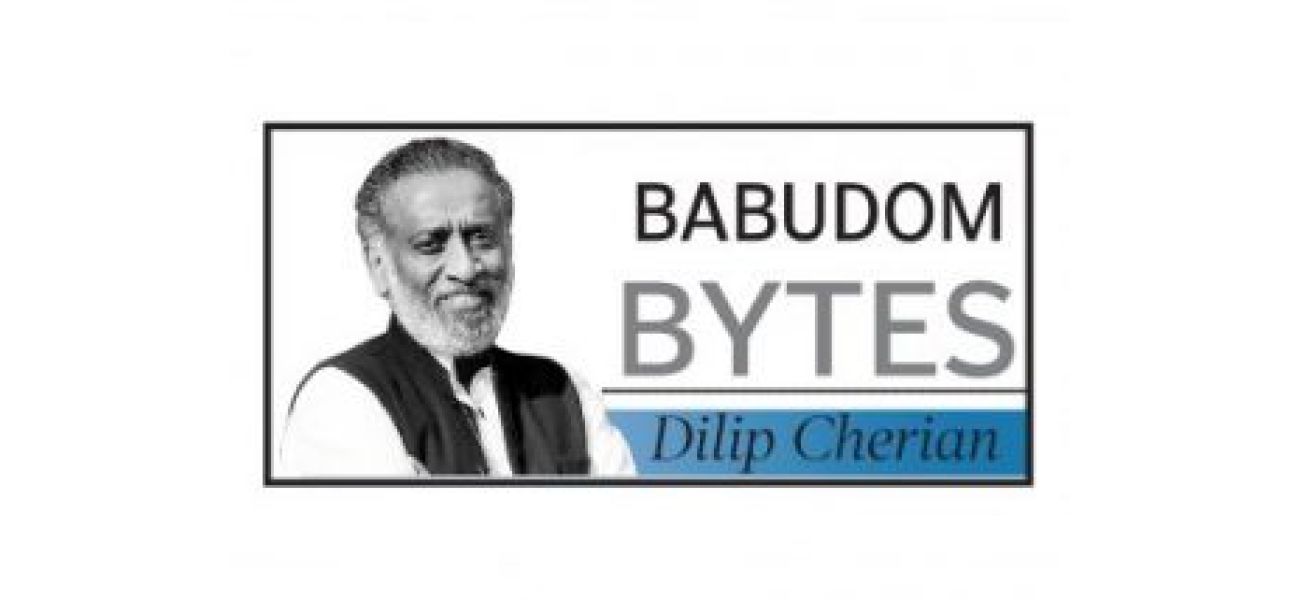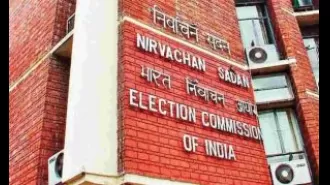The situation is critical.
Rajesh Agrawal, soon to be Commerce Secretary, is leading India's trade discussions with the US, which have restarted. He is experienced in challenging negotiations and has a history of promoting trade and policy reform.
September 27th 2025.

Rajesh Agrawal is a man with a big responsibility on his shoulders. As the soon-to-be Commerce Secretary of India, he is in charge of the country's trade talks with the United States, which have recently resumed. This is not unfamiliar territory for Agrawal, who has been a part of many difficult negotiations throughout his career. With a diverse background in trade promotion, exports, and policy reform, he has been India's go-to negotiator in various trade agreements, from ASEAN to Australia to the Indo-Pacific framework. His expertise in data and strategic intuition, backed by degrees in international business, operations research, and statistics, make him a valuable asset at the negotiation table.
However, the current round of talks with Washington, which began on September 16 in Delhi, is not a run-of-the-mill exercise. The US has imposed 50% tariffs on Indian goods, citing India's imports of oil from Russia, and is now pushing for greater access to India's dairy and agricultural markets. For Agrawal and his team, the top priority is to protect the millions of farmers whose livelihoods depend on these industries, rather than simply enacting new laws.
The negotiation is not just about tariffs, but also about finding a balance between domestic survival and international trade pressures. India's defensive stance must be transformed into bargaining power, and Agrawal will have to use all his skills to ensure that the nation does not have to give up important territory in the name of "market access." As he prepares to officially take on his role after September 30, Agrawal is facing a baptism by fire. The world is watching to see if India can shift from being reactive to dictating the rules of the game, and the pressure is high with a short time frame.
Meanwhile, the Ministry of Home Affairs is gearing up for a major reshuffle in the leadership of India's Central Armed Police Forces (CAPF). With the retirement of several top IPS officers, including the DGs of BSF, ITBP, and CISF, the MHA is considering its options for the next generation of leaders. Among the probable selections are Vitul Kumar from CRPF, who is likely to head ITBP, and B Srinivasan of NSG, who is being considered for the post of CISF chief. These experienced officers possess the necessary operational and strategic expertise to lead their respective forces. However, the decision is not yet finalized, and there is still a possibility of a temporary extension for BSF DG Daljit Singh Chawdhary.
The selection process for these leadership positions is a meticulous one, with a focus on balancing cadre, experience, and merit. The MHA must also ensure representation from various cadres, such as AGMUT and UP, while making these crucial decisions. Leadership is crucial for these forces, as they operate in high-stakes and high-pressure situations, whether it's securing the borders or protecting industries. While these appointments may seem like routine affairs, the stakes are far from low, and the MHA's decisions will be put to the test in the coming weeks.
The line between being a bureaucrat and a politician has become increasingly blurred in today's India. Many retired civil servants are now actively pursuing political careers, using their experience and connections to further their agendas. In Bihar, where elections are approaching, several retired IAS officers have joined political parties, with some even securing tickets to contest in the upcoming elections. This trend is not limited to Bihar, as many former civil servants, including former Ambassador Taranjit Singh Sandhu, Odisha's VK Pandian, and others, are also eyeing political careers.
Parties are drawn to these former officers for their administrative expertise, reputation, and credibility. Additionally, many believe that politics allows them to serve the people without the constraints of bureaucracy. While this may sound noble, the reality is that many of them start laying the foundation for their political careers while still in service, compromising their neutrality and playing to the tune of their future superiors. This goes against the very foundation of bureaucracy, which is supposed to be neutral and impartial. For this reason, it is crucial for a "cooling-off" period to be in place before civil servants enter the political arena. If not, the renowned steel frame of India runs the risk of becoming a political trampoline, with the referees also being players in the game. Who then is left to ensure a fair game? This question is something we must ponder upon, as we move forward.
However, the current round of talks with Washington, which began on September 16 in Delhi, is not a run-of-the-mill exercise. The US has imposed 50% tariffs on Indian goods, citing India's imports of oil from Russia, and is now pushing for greater access to India's dairy and agricultural markets. For Agrawal and his team, the top priority is to protect the millions of farmers whose livelihoods depend on these industries, rather than simply enacting new laws.
The negotiation is not just about tariffs, but also about finding a balance between domestic survival and international trade pressures. India's defensive stance must be transformed into bargaining power, and Agrawal will have to use all his skills to ensure that the nation does not have to give up important territory in the name of "market access." As he prepares to officially take on his role after September 30, Agrawal is facing a baptism by fire. The world is watching to see if India can shift from being reactive to dictating the rules of the game, and the pressure is high with a short time frame.
Meanwhile, the Ministry of Home Affairs is gearing up for a major reshuffle in the leadership of India's Central Armed Police Forces (CAPF). With the retirement of several top IPS officers, including the DGs of BSF, ITBP, and CISF, the MHA is considering its options for the next generation of leaders. Among the probable selections are Vitul Kumar from CRPF, who is likely to head ITBP, and B Srinivasan of NSG, who is being considered for the post of CISF chief. These experienced officers possess the necessary operational and strategic expertise to lead their respective forces. However, the decision is not yet finalized, and there is still a possibility of a temporary extension for BSF DG Daljit Singh Chawdhary.
The selection process for these leadership positions is a meticulous one, with a focus on balancing cadre, experience, and merit. The MHA must also ensure representation from various cadres, such as AGMUT and UP, while making these crucial decisions. Leadership is crucial for these forces, as they operate in high-stakes and high-pressure situations, whether it's securing the borders or protecting industries. While these appointments may seem like routine affairs, the stakes are far from low, and the MHA's decisions will be put to the test in the coming weeks.
The line between being a bureaucrat and a politician has become increasingly blurred in today's India. Many retired civil servants are now actively pursuing political careers, using their experience and connections to further their agendas. In Bihar, where elections are approaching, several retired IAS officers have joined political parties, with some even securing tickets to contest in the upcoming elections. This trend is not limited to Bihar, as many former civil servants, including former Ambassador Taranjit Singh Sandhu, Odisha's VK Pandian, and others, are also eyeing political careers.
Parties are drawn to these former officers for their administrative expertise, reputation, and credibility. Additionally, many believe that politics allows them to serve the people without the constraints of bureaucracy. While this may sound noble, the reality is that many of them start laying the foundation for their political careers while still in service, compromising their neutrality and playing to the tune of their future superiors. This goes against the very foundation of bureaucracy, which is supposed to be neutral and impartial. For this reason, it is crucial for a "cooling-off" period to be in place before civil servants enter the political arena. If not, the renowned steel frame of India runs the risk of becoming a political trampoline, with the referees also being players in the game. Who then is left to ensure a fair game? This question is something we must ponder upon, as we move forward.
[This article has been trending online recently and has been generated with AI. Your feed is customized.]
[Generative AI is experimental.]
0
0
Submit Comment




